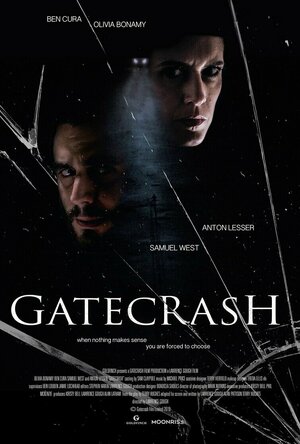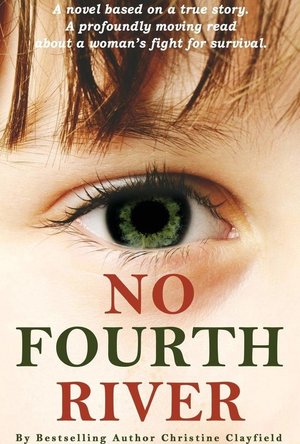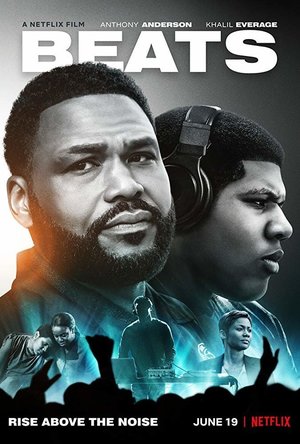Sarah (7800 KP) rated Gatecrash (2021) in Movies
Feb 19, 2021
And in this aspect it doesn’t disappoint. Gatecrash disposes with any preamble and pitches us straight into the action. A couple return to a rather maze-like and futuristically styled home in the middle of an argument, but what at first seems like a domestic argument is in fact much more serious: the husband, Steve (Ben Cura), has just committed a hit and run. He’s drunk, abusive and wants his wife, Nicole (Olivia Bonamy), to take the blame. And it wasn’t just an innocent accident as Steve not only knocked someone over, he drove over them again in his rush to flee.
The first 15 minutes follows this argument and then as it ends as Nicole and Steve separate inside the house; him to clean up any evidence from the accident and her to discretely take a pregnancy test. This soon begins to drag, and fortunately we’re saved by a sinister phone call from the landline, that appears to be coming from Steve’s mobile, that he hasn’t seen since the hit and run. This soon escalates into something verging on horror territory as we follow Nicole around their now claustrophobic house.
It’s this middle act that I enjoyed the most as Gatecrash turns into a tense and almost terrifying thriller, as Nicole and Steve have to face off against a mysterious and menacing police officer (Samuel West) who arrives on their doorstep. West is possibly my favourite part of this film, his character is completely over the top and ridiculous yet still portrays this strange, ominous air. It’s strange to find a character who is immensely fun to watch yet still manages to terrify you. He’s further helped by his character’s unexplained and questionable motives that give this thriller an intriguing air of mystery.
Following on from the aftermath of the hit and run, the film jumps to a later time after Nicole has had her baby and again the couple are visited by another mysterious stranger, this one called Sid (Anton Lesser). At first Sid seems like a kind, lovely old man but his unusual air and conversation soon unveil yet more hidden and sinister motives that culminate in a tense finale.
It’s this final act that I was least keen on. At first the dialogue between Sid, Nicole and Steve is gripping but it seems to drag on and keep going round in circles before it finally gets to some dramatic piece of action. This dragging dialogue is definitely Gatecrash’s biggest flaw, and this is in no doubt down to it’s theatre origins. On the stage I can see dialogue like this working well, but as a film it needs a lot more oomph to keep our attention. The cast do well to keep us entertained though, Olivia Bonamy puts in a very understated performance as Nicole and Ben Cura was delightful to watch as Steve purely because the character is a rather despicable excuse for a man. And fortunately Gough’s cinematography works well with the few action scenes to try and make up for the slumps in the dialogue heavy earlier scenes.
Overall Gatecrash is a fairly enjoyable thriller and is worth watching purely for its general air of mystery and the tense and exciting second act.
This book is a memoir of Christine Clayfield, where she is sharing her life story. The story begins when she was five years old, and it continues throughout her life, including rebellious teenage years, until the present, when she is 58 years old. All the past memories were triggered when suddenly she gets a call, that her mother is very ill and she has to return to Belgium, where she faces the ghosts from her past. Her youth years are very brutal and the amount of violence and abuse she had to face from her father is absolutely unbelievable. To top her already sad life, she married a violent man, who made her life even more miserable. I tend to question people’s choices in these type of books. Why they didn’t look for help? Why they didn’t complain to other family members? Why they stayed silent? And in many books I do find the answers which sound illogical, but not in this book. Christine explains everything very clearly, and for me, her thoughts and feelings fully explain every choice she had to make. I’m absolutely touched by how honest this book is. Christine poured her heart out and is sharing the deepest and darkest events with the readers, and I applaud her bravery because, I believe, it should have been a really difficult book to write.
The events in this book were jumping between present and past, giving a little insight of what will come. The author shared a beautiful story of how she met her present husband and the letters they shared while apart. They were absolutely adorable. The amount of topics discussed in this book is huge, such as child abuse, bullying, mentally caused illnesses, family problems, relationships with friends, alcoholism, loose sexual behaviour, domestic violence, business ideas, distance relationship, effects of divorce, and many many more. The author is openly speaking about nuns and their cruelty, and I thought nuns supposed to be kind and helpful, but they looked like tyrants rather than saints. (I kind of knew it, but still, was stupidly surprised about this fact 😀 )
The writing style is very pleasant and the language is easy and understandable. The chapters are a decent length and it doesn’t leave you bored. I would like to throw in a disclaimer, this book is not very easy mentally, there is a lot of cruelty and violence and does have a lot of heartbreaking moments, so tissues and strong nerves are recommended. 🙂 I loved the way Christine rounded up her novel, it left me really satisfied. So, to conclude, this work is incredibly inspiring and I do believe it should be widely spread to share the awareness of how you can do anything you put your mind to. That “can do” attitude, clear goals and a lot of hard work will make you successful, no matter what you endured in life. It is all in you, you just need to find it. Please do support this book, there is a lot of things to learn from Christine because she is freaking amazing and her story is absolutely inspiring. Enjoy 🙂

Pegipegi Hotel Kereta Pesawat
Travel and Utilities
App
Enjoy an easy access for Hotel Booking, Flight Tickets, and Train Tickets in the palm of your hand!...

Nigella: The Quick Collection
Food & Drink and Lifestyle
App
Nigella’s bestselling and award-winning Quick Collection - now with over 120 recipes, exclusive...
Emma @ The Movies (1786 KP) rated Beats (2019) in Movies
Sep 25, 2019
Johnno and Spanner are life long friends. Johnno is sensible and has a relatively stable family life while Spanner is suffering from living in his brother's criminal shadow.
When Spanner finds out that Johnno's mum is moving them up in the world to a new house with her policeman boyfriend he's devastated and steals money from his brother to fuel one last great night out for them both.
Firstly, I can't for the life of me work out why this was filmed in black and white, from personal recollections 1994 was pretty colourful, even in Scotland. The only reason I can conclude, as a viewer, is so that they could add a tie-dye electric nightmare at the rave to illustrate the drug-fuelled euphoria in a rather predictable visual way. Neither particularly added anything to the proceedings.
The highlight when it came to the acting in Beats was Lorn Macdonald as Spanner. The different sides of his character were shown so well. We get a peek at the person Johnno knows him to be and not the person he's perceived to be. Macdonald managed to bring a vulnerability to Spanner and reminded us that friends are the family you choose.
Johnno as a character confused me a bit, he was all over the place. Quiet and shy for the most part with the odd outburst that didn't feel like they fit the situation. Cristian Ortega wasn't bad in this part but the muddled character traits throughout left me cold to Johnno.
Beats obviously contains a lot of music and I was pleased that it wasn't always played a full volume. We open with the pair dancing to music and you expect it to be excessively loud. They kept it at a relatively low level but managed to give you the impression it was louder by the way everyone reacted to it. I can't work out whether that was a good or a bad way to start because I keep pondering on that point, being loud would have been accurate but I probably would have been grumbling about that fact right now.
The rave itself felt very accurate but it was tremendously difficult to watch. It really gave you the impression that you were in it, the only trouble with that is that when you are actually in it you're not trying to watch what's happening. Perhaps we could have cranked it up and had audience participation.
Beats is a story of friendship that happens to coincide with a time of change for the music scene in Scotland. There are touching moments in it, mainly around Spanner, but the rest of the film felt like it was trying to be too artistic. There's probably a very niche audience of music lovers out there for this but there were just too many moments that made me frown to give this a higher rating.
On the topic of ratings, as a final point... Beats was rated 18 and I would assume that this was for the drug use and domestic violence. This is me being numb to all things offensive I guess but it really didn't feel like it needed an 18.
What you should do
If you were/are partial to a rave then give this a go, but it's not something I'd generally recommend.
Movie thing you wish you could take home
I'd love the energy to party like that... what a distant memory.

K&H mobilbank
Finance and Business
App
K&H mobilbankkal egyszerűen, könnyedén intézheted bankügyeidet! A K&H mobilbank alkalmazás...

Westpac Banking for iPad
Finance and Business
App
Westpac Banking for iPad makes banking as simple as a tap and a swipe. This app is for Australian...

tajawal - hotels and flights
Travel and Business
App
Tajawal - Flight and hotel bookings 1,000s of flights & over 1,450,000 hotels await you! Book your...




